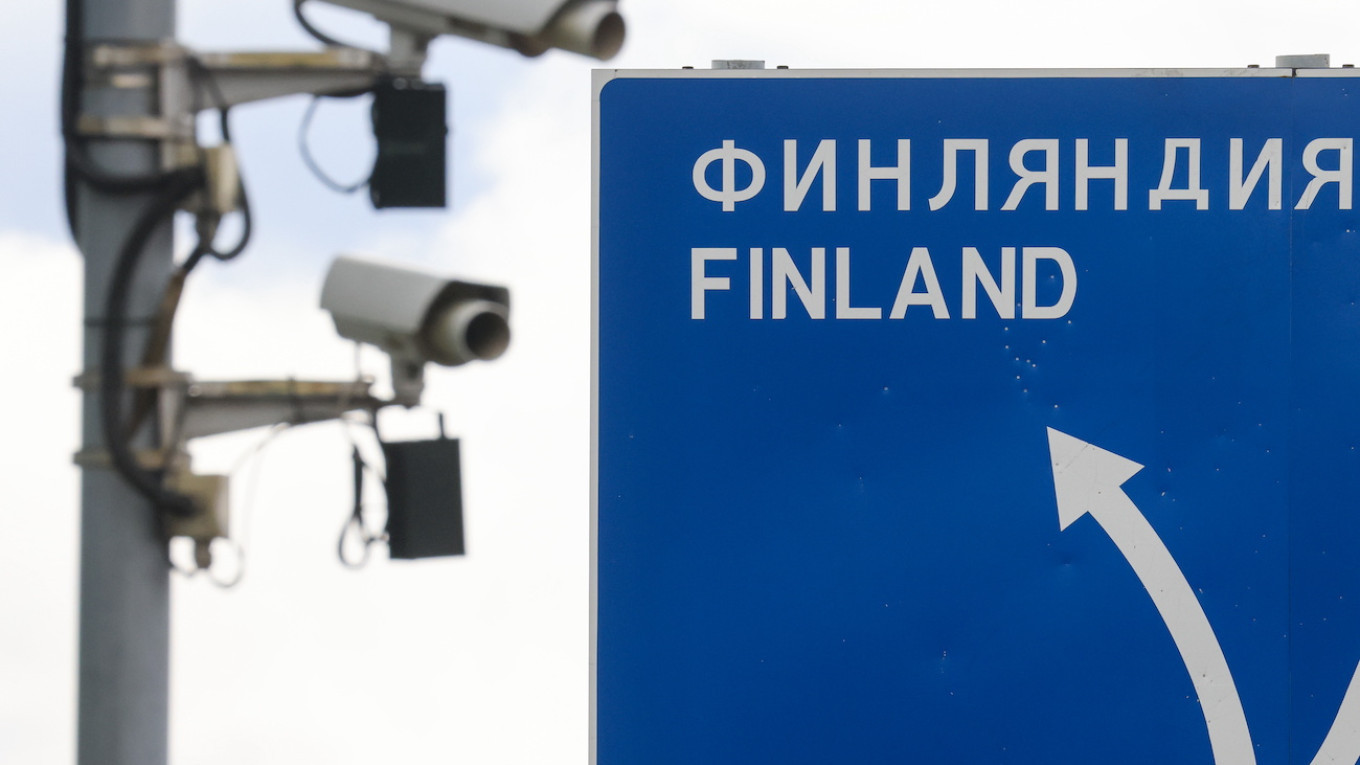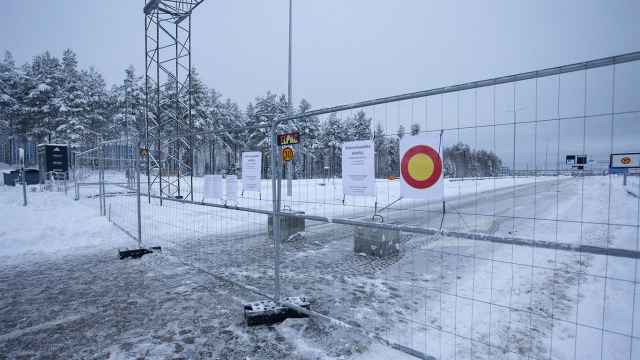Finland’s government is considering closing its border crossings with Russia amid a rising number of asylum seekers from the Middle East and Africa, the broadcaster YLE reported Tuesday, as Finnish officials suggest that Moscow is trying to destabilize the country.
Interior Minister Mari Rantanen told reporters that her agency was drafting proposals that would allow Finland to restrict border crossings, but she did not specify a timeline for Helsinki's anticipated decision.
“Russian authorities’ actions have changed in such a way that it’s become possible to get from Russia to Finland despite the lack of necessary documents,” Rantanen said.
Finland’s border guard authority says around 60 asylum seekers have arrived from Russia since early Monday — compared with 91 people over the past three months.
Citizens of Iraq, Syria, Yemen and Somalia have been among the latest group of asylum seekers, according to the Finnish border guard authority, which added that organized criminal groups were involved in some of the crossings.
Prime Minister Petteri Orpo accused Moscow of “repeating” the 2015-16 migrant crisis, in which he said Russian border agents had “accompanied” undocumented migrants to the border.
Orpo stopped short of classifying the latest influx as Russia’s “hybrid operation,” according to YLE, but he did say it “seemed like a deliberate decision.”
Helsinki was “closely monitoring” and “taking seriously” the apparent increase in the number of undocumented crossings along the Russian-Finnish border, said Prime Minister Orpo.
Finland’s relations with Russia deteriorated after the Nordic country, which shares a 1,300-kilometer border with its eastern neighbor, was accepted into NATO in April over security threats following Moscow’s invasion of Ukraine.
A Message from The Moscow Times:
Dear readers,
We are facing unprecedented challenges. Russia's Prosecutor General's Office has designated The Moscow Times as an "undesirable" organization, criminalizing our work and putting our staff at risk of prosecution. This follows our earlier unjust labeling as a "foreign agent."
These actions are direct attempts to silence independent journalism in Russia. The authorities claim our work "discredits the decisions of the Russian leadership." We see things differently: we strive to provide accurate, unbiased reporting on Russia.
We, the journalists of The Moscow Times, refuse to be silenced. But to continue our work, we need your help.
Your support, no matter how small, makes a world of difference. If you can, please support us monthly starting from just $2. It's quick to set up, and every contribution makes a significant impact.
By supporting The Moscow Times, you're defending open, independent journalism in the face of repression. Thank you for standing with us.
Remind me later.






